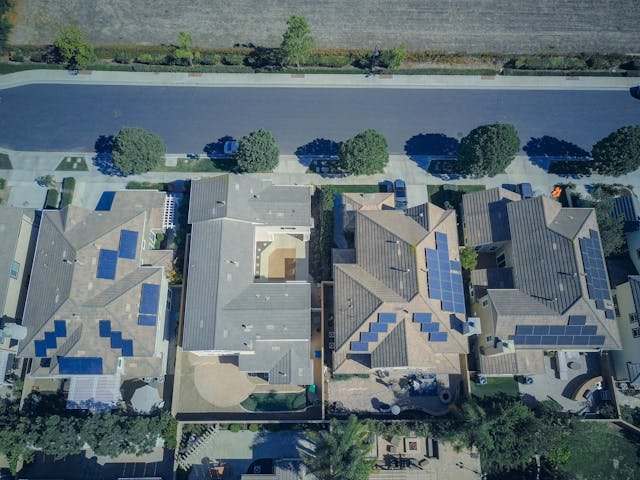Solar panels are becoming more readily available in the market, with a corresponding downward price shift and higher efficiency. There is now a wider variety of types, sizes and wattage output. However, this diversity necessitates more scrutiny as you select your solar panels. A key attribute to consider is longevity, which ensures you will get more out of your solar panels before replacement.
So, you may wonder: How long will my solar panels last? The answer lies in the factors outlined below.
Types Of Solar Panels
There are three principal types of solar panels. They are:
- Monocrystalline Solar Panels: Made from a single, high-grade silicon crystal, thus they are the most efficient type of solar panel. They have a distinctive black colour and are typically the most expensive solar panel type. They are the most space-efficient, requiring less roof space than other types of panels to generate the same amount of power.
- Polycrystalline Solar Panels: Made from multiple silicon crystals, rendering them less efficient than monocrystalline panels but more affordable. They are also less space-efficient, requiring more roof space to produce the same amount of energy as monocrystalline panels. They have a distinctive blue colour and are popular for residential and commercial installations.
- Thin-Film Solar Panels: Made using various materials. While they are the least efficient solar panel type, they are also the most affordable and flexible. In addition, manufacturers can manipulate them into different shapes and sizes, making them a good choice for applications where space is limited or aesthetics are important.
Consulting with a solar professional to determine which type of solar panel best fits your installation is essential.
Solar Panel Degradation
Solar panel degradation refers to the gradual loss of efficiency and output over time due to various factors. This deterioration can impact your solar system’s performance and, ultimately, your return on investment. Here are some of the leading causes of solar panel degradation:
- Temperature: Solar panels generate power by converting sunlight into electrical energy. However, as the panels’ temperature increases, their efficiency decreases, resulting in reduced power output. Higher temperatures can also cause physical damage to the solar cells, such as cracking or warping.
- Weather: While solar panel design accounts for harsh weather conditions, constant exposure to extreme weather over time can cause physical damage and degradation. For example, hailstorms or heavy snowfall can damage the surface of the solar panels or their frames, reducing their efficiency.
- Soiling: Accumulation of dirt, dust, and other debris on the surface of solar panels can reduce their efficiency. This effect stems from substances blocking sunlight from reaching the solar cells, reducing their electricity-generating ability.
Typical solar panel efficiency degradation ranges between 0.5% and 3% annually. However, keeping to the lower end of this scale requires careful selection of quality panels, regular maintenance and cleaning.
How Long Do Solar Panels Last?
The lifespan of solar panels depends on numerous factors, such as the quality of the panels, their installation, and the maintenance of the solar system. Nevertheless, here are some general estimates for the lifespan of solar panels:
- Manufacturer warranty:Most panel manufacturers offer warranties that guarantee their panels will produce power for 25 years or more. These warranties typically cover any defects in the panels and any degradation of the panels’ output over time.
- Environment: On average, solar panels can last 25 to 30 years or more. However, a solar panel’s lifespan can be affected by factors such as weather conditions, physical damage, and maintenance.
- Degradation rate: As stated above, solar panel output typically degrades over time, but the degradation rate varies depending on the quality of the panels and the conditions in which they are installed.
- Maintenance: Proper maintenance can help increase the lifespan of solar panels. That includes regular cleaning to remove debris and inspecting the panels for any physical damage or defects that may need repair.
Solar panels are designed to last for a long time. Still, their actual lifespan can vary depending on several factors. But, by properly caring for the panels and ensuring correct installation in suitable locations, you can enjoy the benefits of clean energy for many years.
















